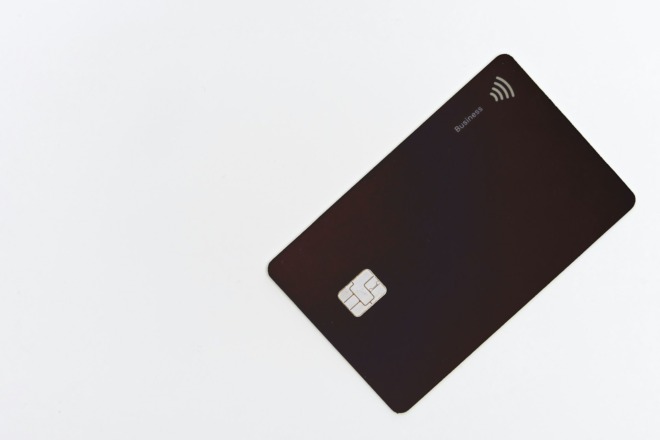Have you ever wondered what people thought about your brand? Most businesses should because how consumers perceive one makes a difference in reputation, visibility and awareness.
The higher these qualities are, the more likely you will have a strong brand. As a result of a strong brand comes customer loyalty, ultimately retaining them and driving more sales. Yet, how can you devise a strategy that helps you maximize effect? How do you know if this strategy will differentiate your brand well? You can find all of the answers through brand research.
The Role of Research in Developing a Strong Brand Foundation
When thinking about building a powerful brand, jumping straight into logo designs, taglines and marketing campaigns is tempting. However, the true foundation of a memorable brand lies in research.
You can easily think of research as a blueprint, providing details about which direction to go. Through brand research, businesses can understand their target audience’s preferences and behaviors. They can also find out which needs have yet to be fulfilled. An analysis even lets you determine how your audience perceives various brand messages.
By breaking down your competitors and studying their tactics, you can create a unique market position and avoid clichés. While you can gain insight into other brands, you can also gather an introspective look at your brand. Research helps you align your values, vision and strengths with your audience. In turn, you create a more consistent and authentic brand voice — one that engages, resonates and stands out.
In short, use data before you dive into creating your branding elements. Research-driven insights set the stage for a brand with more visibility and recognition.
Types of Brand Research Methods
Businesses have various ways to conduct research for branding. Here are some of the methods you may want to pursue.
Survey Research
Surveys are one of the most straightforward and effective brand research methods. Using them allows you to create targeted questions for a selected group of people. In turn, businesses can receive feedback directed toward their brand’s perception. Whether you distribute them through emails or social media, surveys offer the advantage of scalability. You can easily reach hundreds or even thousands of people, depending on how you formulate and push the survey for responses.
The key to successful survey research is in the questioning. You must craft clear, unbiased and relevant questions to gain actionable insights. For instance, a company looking to launch a new product can survey its existing customers to gauge interest and understand purchase motivators.
Focus Groups
Focus groups are a qualitative research approach that involves gathering a small, diverse pool of people to discuss and provide feedback about a brand. Often, companies use trained professionals to moderate them. However, the primary goal of these discussions is to uncover deeper insights and perceptions you may not find with surveys.
Instead, focus groups allow you to observe and interact with participants, gaining a better understanding of their attitudes and concerns. For example, a company considering a rebrand may host a focus group to see reactions to potential logo designs.
One of the main advantages of focus groups is that they explore more complex issues in depth. They allow for heavier clarifications. However, it’s crucial to ensure diversity within the group to capture various perspectives and gain richer feedback.
Online Mentions
Another excellent way to conduct brand research is through tracking conversations about brands across various platforms. These can include social media, blogs and forums. Tracking online mentions offers brands a valuable, unfiltered glimpse into how people perceive brands.
These conversations often contain spontaneous feedback, reviews, comments and discussions about a brand. When monitoring these, you can identify trends in how people generally feel. It allows you to spot potential issues and uncover genuine user experiences.
Tools like Brandwatch, Mention and Google Alerts help companies keep track of their digital reputation, capturing mentions across different platforms. With the ability to capture real-time information, you allow your brand to respond to feedback promptly.
Tips for Successful Brand Research
Brand research may seemingly be a straightforward process. However, there are key techniques to keep in mind. To ensure you maximize your research results, follow these tips for success.
1. Define Your Objective
Before diving into any brand research method, having a clear, objective mind is imperative. What specific information are you seeking? Are you exploring market positioning, gauging brand perception, or testing a new product idea? Pinpoint your objective so your research stays focused and actionable. That way, you streamline the research process and choose the most appropriate methods.
2. Use Various Research Methods
Relying on a single brand research method offers a limited perspective, causing you to overlook some of the most crucial insights. For a deeper understanding of your brand, it’s essential to use a mix of various methods. While surveys provide great data-driven insights, focus groups can dig into consumer feelings.
That’s why diversifying research methods is crucial. This ensures you validate your findings across different sources, ensuring nothing else sways your results.
3. Conduct a Competitor Analysis
When building a strong brand, understanding your competition is just as vital as knowing your own business. Competitor analysis involves studying brands that offer similar products or services. That way, you gain insights into their strategies, strengths and weaknesses.
By analyzing competitors, you identify gaps in the marketing and successful tactics to emulate. Yet, this doesn’t mean copying what others do. Instead, it means you should gain inspiration but determine how to do things differently.
Moreover, competitor analysis helps you set realistic goals and measure your brand’s performance against industry standards. In turn, you can make your mark in a space where your brand is more compelling than others.
4. Understand the Influences of Consumer Perception
Consumer perception is how brands view and interpret a brand’s messaging, products and overall presence. Digging into the factors that shape these perceptions is critical for brand research. These influences range from past experiences and word-of-mouth recommendations to society and cultural narratives.
Understand these influences to craft strategies that relate to your audience more deeply. Doing so can strengthen your image and allow consumers to retain your messaging more easily.
5. Continuously Monitor and Adapt to Market Changes
The market is constantly changing. Consumers are always switching their preferences for one thing over another. Meanwhile, companies are devising new strategies and techniques that work for their brand. For your brand to remain relevant, it’s essential to conduct brand research continuously. Therefore, constant monitoring of the market is key.
Doing so allows you to see what is trending and the latest on what consumers love. When using this approach, you enable your business to adapt quickly, ensuring you’re always aligned with current marketing realities.
Implement Brand Research to Build Comprehensive Strategies
Brand research is your guide to understanding your audience’s perspective and constructing strategies that help you stay responsive to changes. As you continue onward, consider brand research more than a tool — it’s a key piece of the puzzle directing every branding endeavor. Therefore, let research lead you to achieve branding excellence and gain an edge in the competitive marketplace.


